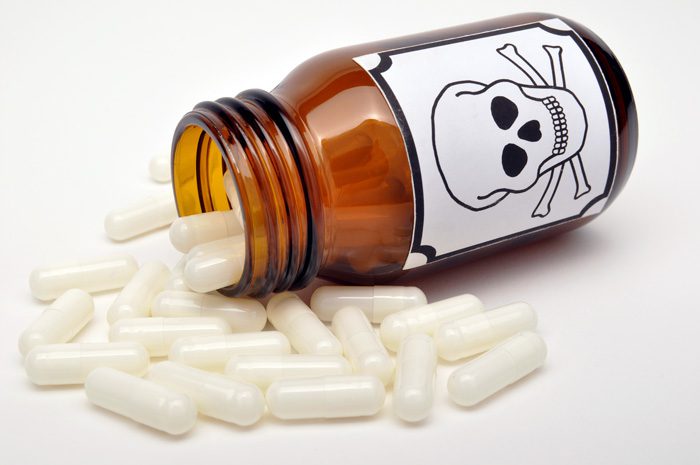By Sandy Baker
A Powerful Drug
Fentanyl is a synthetic opioid that may be given to patients in serious pain, but this drug has become linked to the increase in overdose deaths from opioids. Illegal forms of it are highly dangerous and typically sold through illegal markets because of the drug’s effect, which is much like that of heroin.
What makes fentanyl so worrisome is that it is 50 to 100 times more potent than the average dose of morphine doctors prescribe, according to the U.S. Centers for Disease Control and Prevention.
Increasing Use of Fentanyl
Fentanyl is highly lethal and yet it creates such an intense high that it is often sought after by those suffering from substance abuse. The National Institute on Drug Abuse reports that in 2016, the use of fentanyl and other synthetic opioids surpassed the use of prescription opioids as the most common drug linked to overdoses in the country. That year, 42,248 people died from overdoses related to opioid use. Of those, synthetics were behind 19,413 deaths.
Though commonly used by doctors for pain treatment, such as during cancer treatment and to relieve severe pain after surgery, fentanyl is misused often. Brand names, such as Actiq, Sublimaze, and Duragesic are some of the most commonly used. Some forms look nothing like illegal drugs. For example, Actiq is administered in a type of lozenge that’s placed under the tongue.
Does Your Loved One Have an Addiction to Fentanyl?
Fentanyl, in all forms, can be abused. Even if a doctor prescribes it, it is possible for a person to become addicted in a short time. Illegal varieties are particularly dangerous because they may be laced with other drugs. Those who use it typically will experience an intense euphoria and a hard come-down from it.
Some symptoms of abuse in your loved one may include:
- Dizziness
- Blurred vision
- Slowed breathing
- Seizures
- Constipation
- Drowsiness
- Itching
- Vomiting or nausea
- Slowed heart rate
Over time, it is possible for a person to develop a tolerance to the drug. As a result, they may seek out more of the substance to achieve the same level of high. They may also make this a focus of their day. For example, they may talk about or look for the drug throughout the day. In some situations, people are unable to maintain responsibilities due to their addiction.
What Type of Fentanyl Addiction Treatment Is Available?
When you visit our Lubbock, Texas drug treatment program, our team works closely with you to create a customized treatment plan to address your individual needs. A component of this is determining if you need detox.
Those who have a severe addiction to fentanyl will need a medically-monitored detox program. Withdrawal from fentanyl can be a difficult and potentially life-threatening process. In a detox program, doctors are available to monitor your health and to provide medication to reduce pain or discomfort.
Most people need inpatient treatment, especially if they are in a high-risk environment. A traditional residential drug treatment program will provide treatment for withdrawal and dependency as well as both group and individual therapy to discuss the cause of the addiction while promoting the developing of coping mechanisms to avoid relapse. Specialized treatment to manage pain without the use of opioids is a focus of many programs, especially if the addiction to fentanyl stems from chronic pain.
Some people may benefit from outpatient therapy after residential treatment. It’s important to know just how addictive this drug is. People who use it over a period of time develop a high tolerance to it, which can be very difficult to break on your own. However, outpatient care may provide the support you need to continue your recovery.
What If You Are Suffering from Pain?
Many people begin using fentanyl because their doctor prescribed it. As noted, addiction happens quickly, but it is possible to break this dependency in the proper environment even if you still have pain.
There are a number of non-opioid pain relievers that can help you with any chronic pain you have without encouraging your addiction. Also, you can use physical therapy, yoga, meditation, acupuncture, and other non-pharmaceutical treatments as part of your pain management program.
Don’t Wait to Get Help for Fentanyl Addiction
If you are worried about fentanyl addiction, take the first step to receive help. Many men and women using this drug continue to do so because they believe there is no hope for recovery. The Ranch at Dove Tree’s drug treatment program in Lubbock, Texas, can help you plan for a future free from the burden of addiction.







